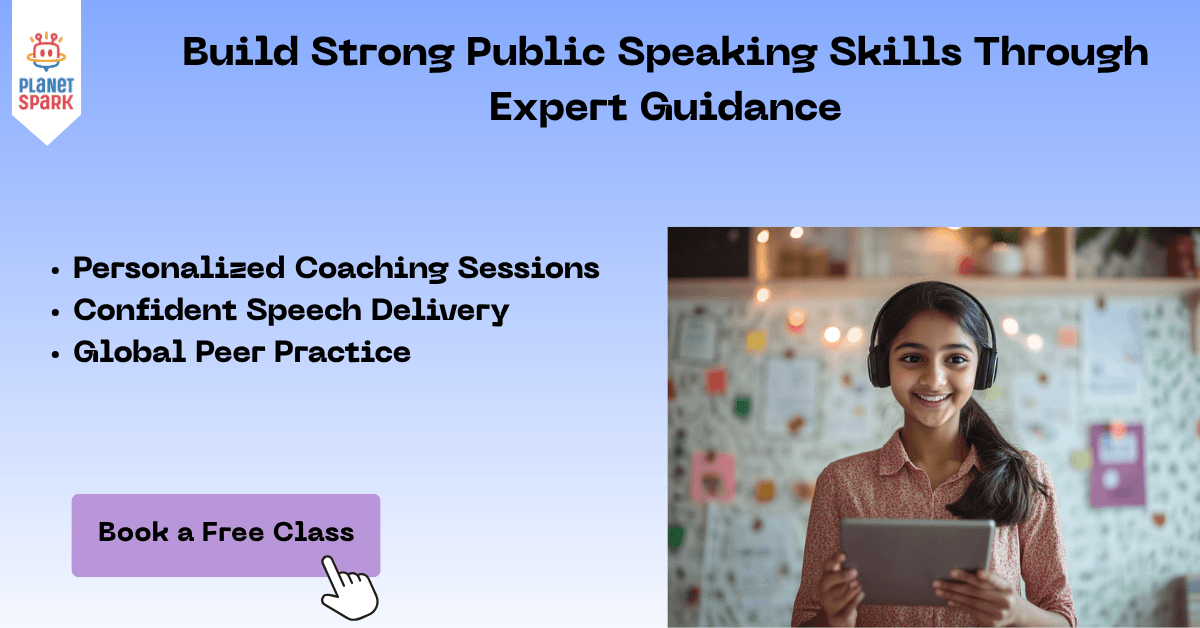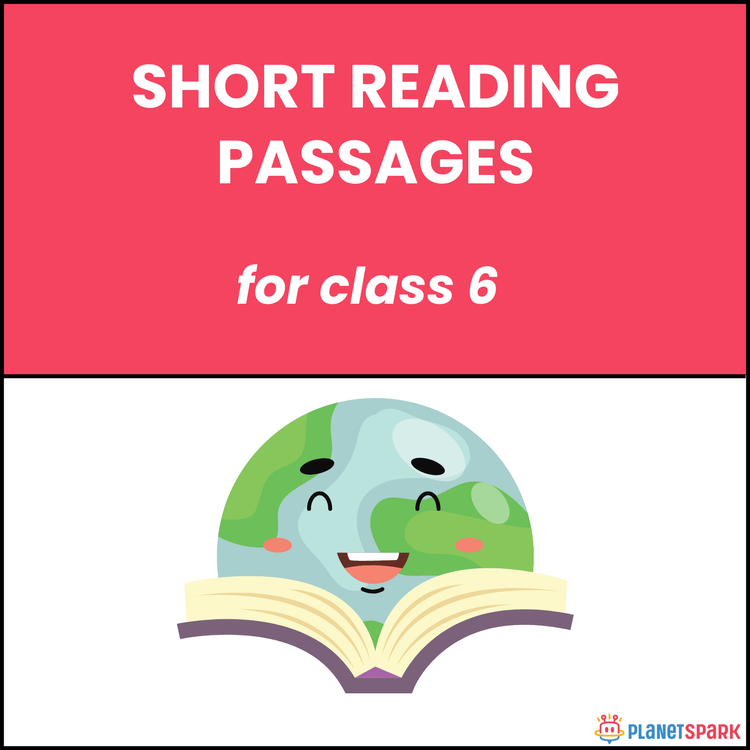10 Fun Tongue Twisters in English for Clear Speech
Last Updated At: 29 Oct 2025
9 min read

Table of Contents
- Why Tongue Twisters Are Perfect for Speech Practice
- The Science Behind Tongue Twisters and Clear Speech
- Easy and Fun Tongue Twisters in English for Beginners
- Challenging Tongue Twisters to Test Your Speech Skills
- How Tongue Twisters Boost Public Speaking Confidence
- Why Choose PlanetSpark for Your Child’s Public Speaking Jour
Words have power, and the clearer you say them, the stronger that power becomes. But clear speech doesn’t happen overnight; it takes practice, fun, and a little bit of tongue-twisting challenge! In this blog, you’ll explore 10 fun tongue twisters in English that help kids, beginners, and even confident speakers sharpen pronunciation, improve fluency, and boost confidence in communication. Whether you’re preparing for a school speech, public speaking contest, or just want to sound crisp and confident, these exercises will make your words flow effortlessly and your delivery shine.
Why Tongue Twisters Are Perfect for Speech Practice
Tongue twisters are short phrases or sentences filled with repetitive sounds that test your ability to pronounce words clearly and quickly. They train your tongue, lips, and mouth muscles to move smoothly and accurately, which directly improves your pronunciation and fluency in English.
Children often struggle with certain sounds such as “s,” “r,” or “th.” Practicing tongue twisters in English can turn that difficulty into a fun game. For instance, repeating phrases like “She sells seashells by the seashore” strengthens control over your tongue and helps in sound distinction. This not only enhances diction but also boosts confidence while speaking in front of an audience.
Tongue twisters are particularly effective for young learners because they combine entertainment with education. Instead of boring drills, kids enjoy the challenge of saying something tricky without tripping over their words. Over time, this playfulness builds natural fluency and speech clarity, essential skills for both public speaking and spoken English.
They also promote active listening. When children hear their own voice making rhythmic patterns, they start noticing pronunciation errors. This awareness is a major step toward mastering the English sound system.

The Science Behind Tongue Twisters and Clear Speech
While tongue twisters might seem like fun word games, they’re actually powerful linguistic tools backed by science. These tricky phrases challenge the brain’s speech coordination systems, the same ones that help us speak fluently in everyday conversation.
When we say tongue twisters in English, our brain works overtime to control multiple muscles, lips, jaw, and tongue, ensuring precision and speed. Regular practice strengthens these muscles, improving articulation and control. It’s like going to the gym, but for your voice!
Beyond pronunciation, tongue twisters help with speech rhythm and intonation. They make you aware of word stress, pacing, and pauses, essential elements in effective communication and public speaking. By repeating rhythmic patterns, children naturally develop a sense of flow and energy in their speech.
1. How Tongue Twisters Train the Brain
Each time you repeat a tongue twister, your brain creates stronger neural pathways between thought and speech. This builds quick reflexes for pronunciation. The constant repetition of similar sounds forces the brain to differentiate between subtle phonetic differences, making your pronunciation sharper over time.
2. Pronunciation and Breath Control
Many learners overlook breath control while speaking. But tongue twisters demand continuous speech without breaks, improving lung coordination and stamina. This technique is especially useful for public speakers who need to project their voice confidently without gasping for air mid-sentence.
3. Confidence Through Challenge
Overcoming difficult lines like “Peter Piper picked a peck of pickled peppers” gives children an instant confidence boost. Mastering something that feels impossible at first teaches persistence, a valuable trait for any speaker. Moreover, the laughter and fun that follow mistakes help kids relax and see learning as enjoyable, not stressful.
Transform stage fear into fearless speech, make your voice your superpower.
Easy and Fun Tongue Twisters in English for Beginners
Starting simple is key. Easy tongue twisters are great for beginners, especially kids, because they focus on foundational English sounds. They help learners pronounce words smoothly while building familiarity with sound patterns. Below are a few popular and effective examples, along with their benefits.
1. “Red lorry, yellow lorry.”
This twister is fantastic for improving control over “r” and “l” sounds. Say it slowly, then faster, and notice how your mouth muscles adapt to switch quickly between similar syllables.
2. “Four fine fresh fish for you.”
Perfect for refining the “f” sound, this one teaches airflow control and lip positioning, two critical aspects of clear English pronunciation.
3. “Betty bought a bit of butter, but the butter was bitter.”
This classic focuses on the “b” and “t” sounds, training kids to balance speed with clarity. It’s rhythmic and fun, making it ideal for group activities or class warm-ups.
4. “How much wood would a woodchuck chuck if a woodchuck could chuck wood?”
This playful challenge strengthens breath control and tongue movement. It’s especially effective for practicing consonant blending, which makes speech smoother.
5. “She sees cheese.”
Short and simple, yet incredibly effective for “s” pronunciation. Repeating this line builds agility and improves precision.
Practicing these easy tongue twisters in English every day, even for five minutes, can bring a noticeable improvement in a child’s articulation. They not only improve speech clarity but also increase awareness of how English sounds differ from one another.
These exercises are also wonderful warm-ups before storytelling, drama, or public speaking sessions. Teachers often use them before speech practice to loosen up the voice and get students excited.
Give your child the gift of clear communication and see confidence soar!
Challenging Tongue Twisters to Test Your Speech Skills
Once your child gets comfortable with the easy ones, it’s time to raise the bar with difficult tongue twisters in English that push clarity and speed to their limits. These tricky lines are excellent for advanced learners who wish to enhance diction, control, and rhythm while speaking.
The goal is not just to say these fast, but to say them clearly. Each repetition should sound crisp, without skipping or blending sounds. These exercises help polish pronunciation and strengthen confidence for situations like storytelling, debates, or public speaking contests.
1. “Six sleek swans swam swiftly southwards.”
This classic is a mouth workout! It targets “s” and “sw” sounds that often trip speakers. Practicing this daily can help maintain steady airflow and improve voice sharpness.
2. “Pad kid poured curd pulled cold.”
According to linguistic studies, this is one of the toughest tongue twisters ever created. It helps in controlling consonant clusters, essential for clarity in fast-paced English conversations.
3. “The great Greek grape growers grow great Greek grapes.”
This one works wonders for “gr” and “gl” transitions, helping kids fine-tune pronunciation and balance between speed and accuracy.
4. “Fred fed Ted bread, and Ted fed Fred bread.”
This fun, rhythmic line helps develop timing and pace while speaking, two traits crucial for storytelling and expressive reading.
Children who practice such difficult tongue twisters in English often notice a dramatic improvement in their speech agility and confidence. They also learn to maintain composure under pressure, a skill that directly supports public speaking and on-stage communication.
Want your child to handle tough words like a pro? Turn every speech into a spotlight moment!
How Tongue Twisters Boost Public Speaking Confidence
Public speaking isn’t just about what you say; it’s how you say it. The power of a speech lies in the delivery, and clear, articulate speech makes your message shine. Tongue twisters in English are one of the simplest, most effective tools for improving delivery skills in young speakers.
They develop muscle memory for articulation, making it easier for kids to pronounce difficult words effortlessly on stage. More importantly, they teach rhythm and pacing, the heartbeat of good speaking.
Imagine a child standing on stage, confidently saying every word, pausing at the right moments, and engaging the audience with expressive voice control. That’s what tongue twisters help create: clarity mixed with charisma.
These exercises also train children to manage stage fright. When you repeat something fun and challenging daily, you naturally get comfortable with hearing your voice and performing in front of others. Over time, this comfort transforms into confidence.
The connection between tongue twisters and storytelling
Tongue twisters enhance storytelling ability by teaching voice modulation and tone control. Storytelling requires shifting between characters, emotions, and tempos, skills strengthened through controlled speech. Kids who master this technique often captivate audiences with expressive, fluent narration.
From practice to performance
PlanetSpark’s trainers often use tongue twisters as part of warm-up sessions before speeches or debates. This helps students loosen up, build focus, and enter their presentations with clarity and confidence. The difference in stage performance is often visible within just a few weeks of consistent practice.

Why Choose PlanetSpark for Your Child’s Public Speaking Journey
When it comes to developing communication and public speaking skills, PlanetSpark goes beyond just teaching; it builds personality. Every session combines fun learning activities like tongue twisters in English, storytelling, and debate training to nurture confident, expressive young speakers.
Here’s what makes PlanetSpark the best platform for your child’s speaking growth:
1:1 Expert Coaching: Every child receives personalized attention from certified communication trainers and child psychology experts, ensuring customized feedback and steady improvement.
Step-by-Step Skill Building: The program systematically develops skills like body language, voice modulation, storytelling, debating, and persuasive speaking.
TED-Style Training: Students learn to craft powerful speeches following the “Hook–Message–Story–Call-to-Action” model used by TEDx speakers.
Global Practice Platforms: Children engage in live debates, panel discussions, and storytelling sessions with peers from over 13 countries.
Competitions and Leagues: Frequent internal contests and a national-level Public Speaking League give learners real-world performance opportunities.
Video Feedback Loop: Students receive recordings of their speeches and review them with their coach for detailed feedback and growth.
PlanetSpark’s holistic approach makes communication fun, interactive, and meaningful. With the right guidance, every child can find their unique voice and express themselves confidently, in class, on stage, or anywhere in life.
Twist Words, Build Confidence, Speak Brighter!
Mastering tongue twisters in English isn’t just a fun pastime; it’s a gateway to clarity, fluency, and self-assurance. From simple “Red lorry, yellow lorry” lines to challenging phrases like “Pad kid poured curd pulled cold,” each twist and turn builds muscle memory, pronunciation precision, and vocal confidence.
For children aiming to speak better, tell stories vividly, or deliver speeches with impact, tongue twisters act as daily mini-workouts that strengthen every aspect of communication. When paired with structured learning from a platform like PlanetSpark, these exercises evolve from fun word games into confidence-building tools for life.
The more your child practices, the clearer they’ll sound, not just in speech, but in self-expression. Because speaking well isn’t about perfection; it’s about confidence, control, and connection.
Unlock your child’s full potential as a speaker,
Join now with PlanetSpark and watch their confidence take center stage!
Frequently Asked Questions
Tongue twisters in English are short phrases or sentences that are difficult to pronounce quickly because of similar sounds or letter patterns. They help improve pronunciation, articulation, and clarity, especially for young learners developing their speaking skills.
They train your tongue and mouth muscles to move precisely, making your pronunciation sharp and clear. Regular practice with tongue twisters helps children improve voice control and fluency, which are key skills for confident public speaking.
Simple examples include “She sells seashells by the seashore” and “Red lorry, yellow lorry.” These are perfect for children who are just starting to build speech clarity and want to have fun while learning.
Parents can turn practice into a playful activity by timing repetitions or challenging kids to say the lines faster without mistakes. This makes learning fun, encourages regular speech practice, and strengthens parent-child bonding through laughter.
Yes, once a child masters the easy ones, difficult tongue twisters in English help them push boundaries. They enhance pronunciation accuracy, vocal agility, and confidence, preparing kids for storytelling or stage speaking.
Download Free Worksheets
Recommended Tests
Personalized Communication Report
Record a video to get a AI generated personalized communication report for your child
Select Learner's Class


